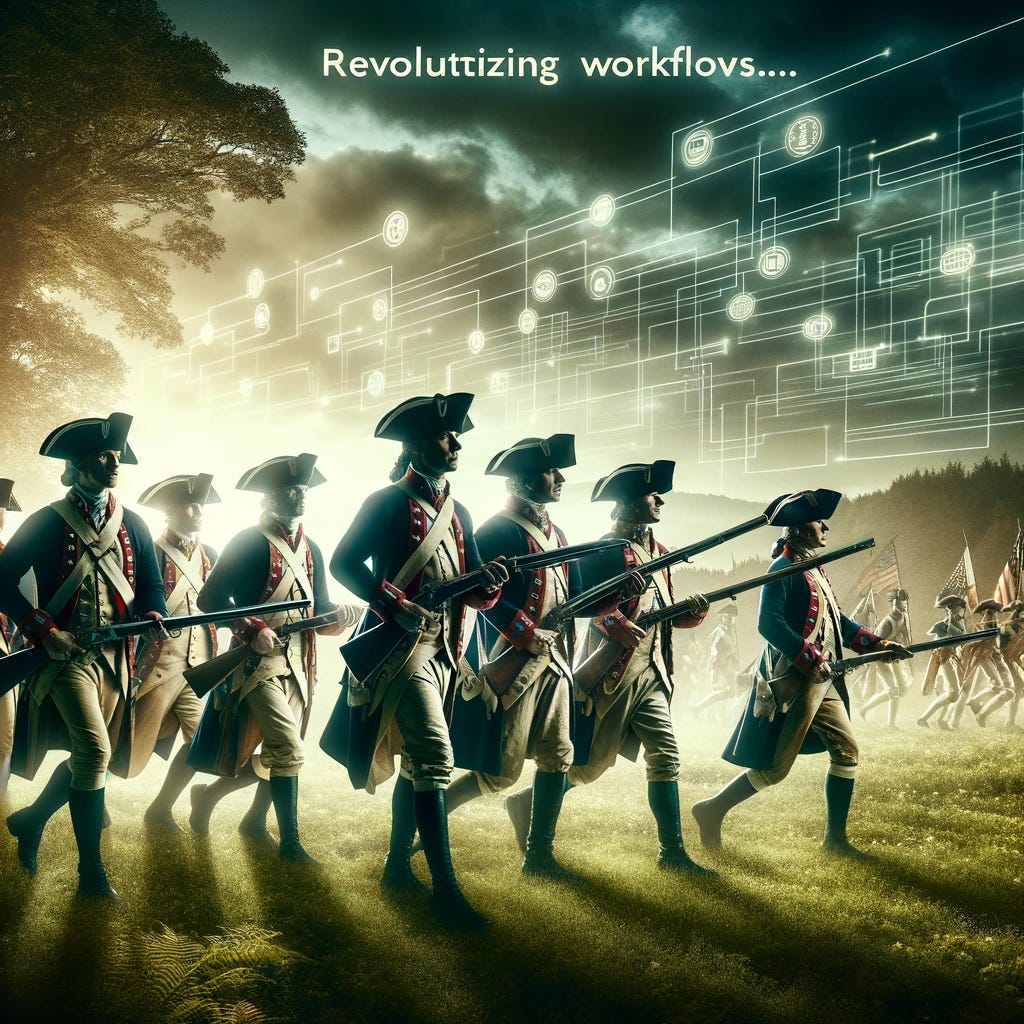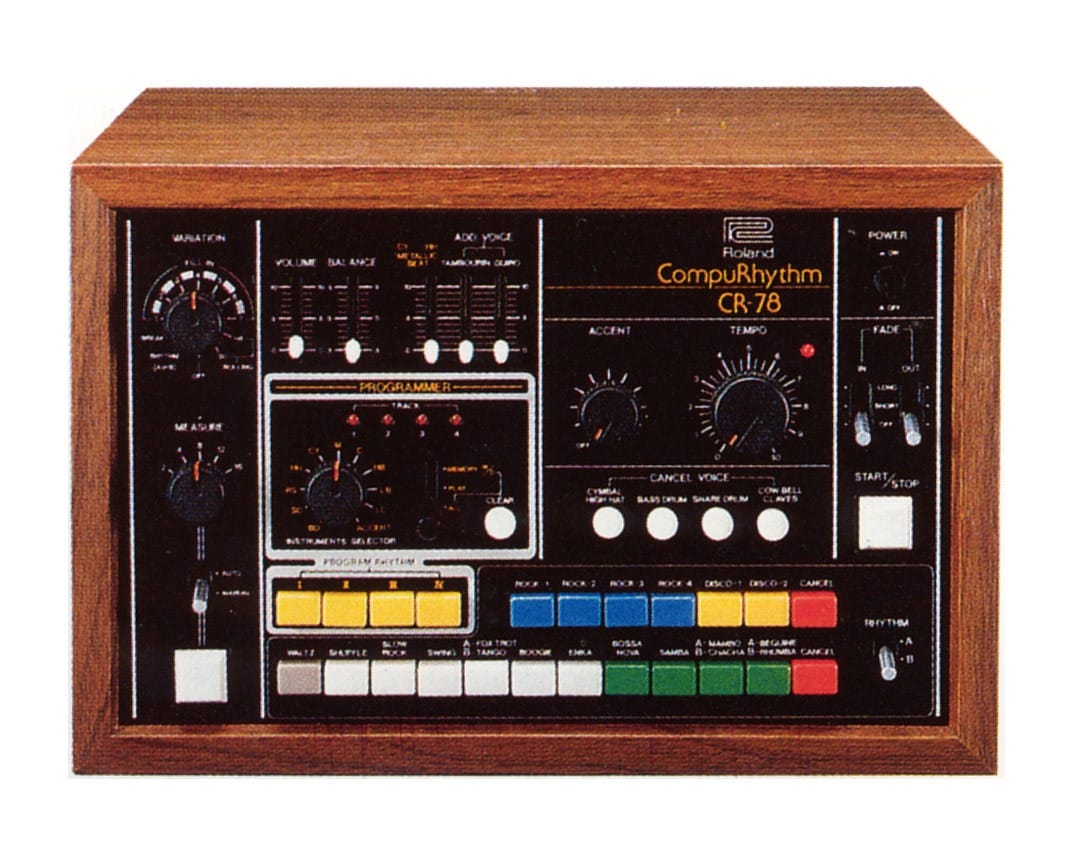32. How Can Humanity Win Against AI?
Let's make it the next drum machine, not a more efficient corporate overlord
Every day now, big tech corporations roll out a new AI product or feature. And as they’re doing this, all sorts of little baby newborn AI startups spring up, as common as scams during the dot com era, each with a hyperbolic promise to “revolutionize workflows” or “streamline content creation.”
Should employees be scared? A recent EY study shows that as many as 72% believe AI in the workforce will be a net negative for them.
Workers generally fear anything that the top brass is exuberant about. Especially given that perfectly intelligent people at Apple somehow concluded that the best way to depict the new iPad is with a video that shows human creativity being crushed by a machine.
Intangible skills are the most valuable
If we believe that the value created by a person’s job is reducible to a given skill, then AI looks pretty intimidating.
“Summarize this document,” we say. Lo and behold, it spits out a summary. What a relief this is when confronted by a long, bland report!
“Rewrite this sonnet into a haiku.” Lo and behold, it sure did that a lot faster than I could!
However, in this case, the result definitely stinks:
Eternal summer,
Thou art more lovely and mild:
Shall not fade, nor lose.
Let’s consider sonnet-to-haiku translation jobs safe for the time being.
But what about next year, or whenever it improves enough to consistently perform these tasks at a high skill level? Will AI continue to be a tool for “streamlined workflows,” or will the tool replace the worker?
As a guy who pays the bills as a writer, when I read that the former CEO of Anthropic said writing was as obsolete as cutting ice from a frozen pond, it struck a chord so tone-deaf it turned my stomach.
Why? Because the most valuable aspect of any given employee can’t be boiled down to any given skill. To be ignorant of that fact is to lack a crucial leadership ability and a fundamental truth about the value of being human.
There’s wisdom behind some fears
What makes someone a highly valuable employee, more than the skill exemplified by their role, is their ability to excel in uniquely human ways. These include seeing the big picture, empathizing with others, exerting influence, collaborating effectively, and bringing creativity into what they do.
Beyond the fear of simply losing one's job to AI, part of what scares workers is the fear of being pushed to work harder because of the tools that make it possible. A prime case is software engineers. Companies will expect far greater output with no downtime or delay.
For artists, the fear is that the good stuff will be overridden by low-effort “content.” We need only look at how Spotify is pushing its own AI-generated music and Adobe promoting its replace background feature, replacing the very photographers who pay to use the software.
If this trend continues, we will be wading in a monotone sea of AI parroting AI. What happens when all the new content is generated by AI, and the AI models in charge of generating new content solely learn from other AI-generated content? What does that future look like?
The qualities it would lack are those that make human-generated content most valuable.
You know, like creativity.
When the drum machine came out, some believed it would eventually replace drummers. Instead, it helped stimulate new genres.
A drummer is not just `human_drum_unit_01`. The metronome-like “perfection” of a drum machine is something, but it’s not everything.
Humans are not just imperfect, we’re spontaneous. We feel.
What makes a good drummer? Beyond a base level of skill, a good drummer can improvise. They can jam with you. They can adjust to you and your mood and throw new ideas into the mix. They can disagree with you.
Drum machines aren’t a threat to drummers. They aren’t an improvement. They’re in a different category. Confronted by all the drum machines in existence, a drummer can simply nod appreciatively and get back to drumming, or they can do something unique and new using a drum machine, drawing from their embodied experience with music and rhythm.
Unlike drum machines, AI is creeping into life in many areas, not just “content creation.” To passively accept this intrusion would be to miss a critical chance at self-knowledge, personal sovereignty, and creativity.
We can do things that stimulate our humanness and help it thrive:
freewriting
being in nature
meditation
anything artistic
going deep with something so that it gets weird
Inner alchemy in the age of AI
I wonder what the next generation will see emerge in their lives.
In my life, I’ve seen a lot of tech developments. I remember what it's like to navigate the world, have questions, and do research without AI, a smartphone, Google, the internet, or computers.
Our unique humanness isn’t just valuable—it’s priceless. I’ll always champion this, beating the drum of humanness, but ultimately, how can we be sure that our humanness is safe from AI optimizations? If we reduce humanness to its component qualities, such as vulnerability, rawness, creativity, grit, true love, presence, and that feeling of warmth when you're with someone, then what is to stop efficient AI models from optimizing for each of these qualities?
After all, achieving a sense of "presence" is something Zuckerberg prioritized for his metaverse.
There shouldn’t be any doubt that AI will be able to eventually replicate all these things. It won’t be able to do them authentically, but it will traverse beyond our ability to discern them from a normal standpoint.
What does that leave?
Your lived experience. If you're only working at something for the result it will achieve, your efforts are in danger of obsolescence.
If your work strives to be a true and natural expression of who you are, then you already have what you need.
To the extent that we don’t do this, and simply propel forward, advancements to AI will make it easier to optimize a state of ignorance.
For the artist, the battle for truth is an internal one.
The antidote to living in an unpalatable reality is to feel everything fully. You can’t get to Z until you fully accept A. Unless you be while you do, you’re chasing your tail.
Real fearlessness is the product of tenderness. It comes from letting the world tickle your heart, your raw and beautiful heart. You are willing to open up, without resistance or shyness, and face the world. You are willing to share your heart with others.
- Chogyam Trungpa


